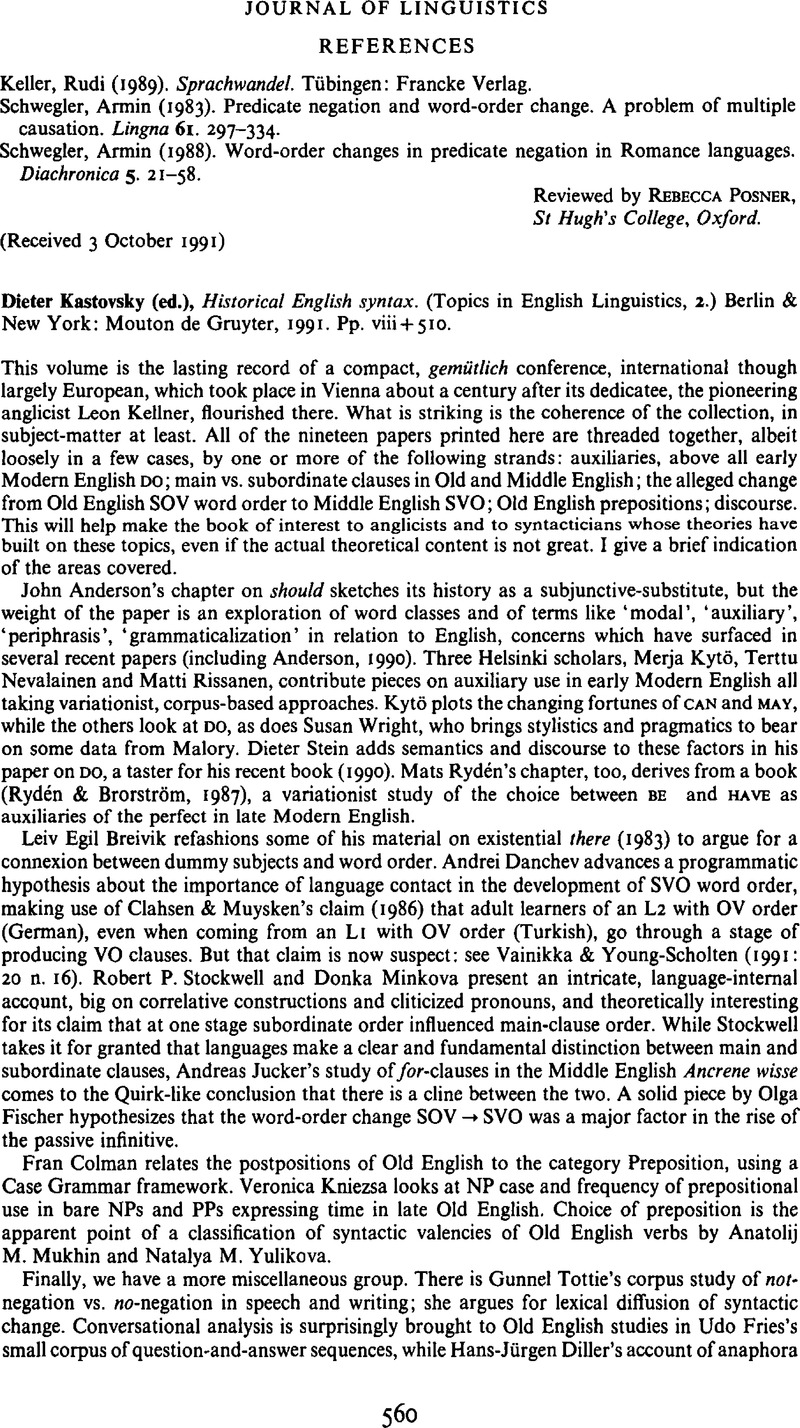Vainikka, Anne &
Young-Scholten, Martha (
1991). Verb raising in second language acquisition: the early stages. In
Universal grammar in second language acquisition (Theorie des Lexikons, 4; Arbeiten des Sonderforschungsbereichs, 282). The LEXLERN Project, Seminar für allgemeine Sprachwissenschaft, Universität Düsseldorf.
1–
47.
Google Scholar 